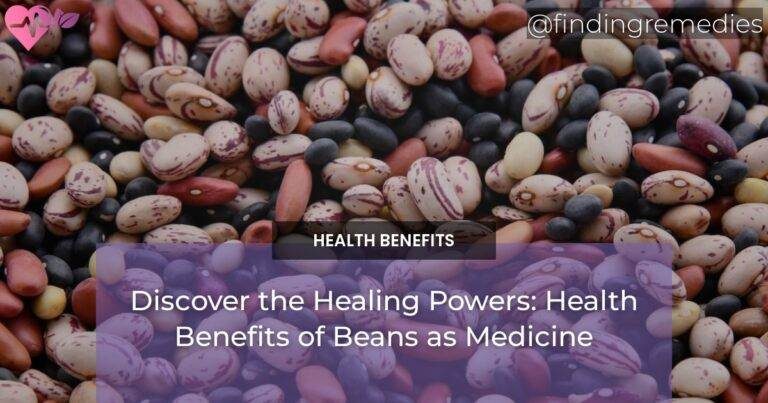Introduction
As the saying goes, you are what you eat. A healthy diet is one of the most important factors when it comes to maintaining good health. Food can be used as medicine to prevent and manage various health conditions. Beans are one of the most important foods that provide a plethora of health benefits. They are a nutrient-dense food that is packed with vitamins, minerals, fiber, and antioxidants. Due to their many health benefits, they have become a popular food choice among people who are looking to improve their health.
Table of Contents
Nutritional Profile of Beans
Beans are a rich source of protein, fiber, vitamins, and minerals. They are also low in fat and calories. In fact, beans are one of the best plant-based sources of protein. A cup of cooked beans contains about 15 grams of protein, which is about the same as a small chicken breast. Compared to other protein sources, beans are more affordable and have a lower environmental impact.
Some of the specific nutrients found in beans include:
– Fiber: Beans are an excellent source of fiber, which is important for digestive function and maintaining a healthy weight.
– Vitamins: Beans are rich in vitamins such as thiamin, riboflavin, niacin, and folate.
– Minerals: Beans are a good source of minerals such as iron, magnesium, phosphorus, and potassium.
– Antioxidants: Beans contain antioxidants such as flavonoids and carotenoids that protect against oxidative stress.
Health Benefits of Beans
Beans have numerous health benefits that are backed up by research. Consuming beans regularly can help with weight loss, improve glycemic control, reduce the risk of chronic diseases such as cancer and cardiovascular disease, and improve gut health.
– Weight Loss: Beans are low in fat and calories but high in fiber and protein, making them a filling food that can help with weight loss.
– Improved Glycemic Control: Beans have a low glycemic index, which means they do not cause a rapid increase in blood sugar levels. This makes them a good food choice for people with diabetes or those looking to maintain healthy blood sugar levels.
– Reduced Risk of Chronic Diseases: Beans are packed with antioxidants and other natural compounds that protect against chronic diseases such as cancer and cardiovascular disease.
– Improved Gut Health: Beans contain prebiotics, which promote the growth of healthy bacteria in the gut. This can improve digestive function and overall gut health.
Natural Compounds in Beans
Beans contain natural compounds such as lectins and phytic acid. While these natural compounds have health benefits, they can also cause digestive issues in some people. Lectins can cause inflammation and damage to the gut lining, while phytic acid can bind to minerals in the gut and reduce their absorption. However, soaking and cooking beans can reduce the levels of these natural compounds and make them easier to digest.
Cooking and Storage of Beans
Cooking beans properly is important for maintaining their nutritional content. The best way to cook beans is to soak them overnight and then cook them in fresh water. This helps to reduce the levels of natural compounds that can cause digestive issues. Beans can be stored in an airtight container in the refrigerator for up to a week.
Varieties of Beans
There are many different types of beans, each with its own unique nutritional profile. Some of the most popular varieties include black beans, kidney beans, chickpeas, and lentils. Black beans are rich in antioxidants, while kidney beans are a good source of iron. Chickpeas are high in protein and fiber, and lentils are a good source of folate.
Risks and Disadvantages of Beans
While beans are generally safe to consume, some people may experience digestive issues such as bloating and gas. This is due to the natural compounds found in beans such as lectins and phytic acid. However, soaking and cooking beans can reduce the levels of these compounds and make them easier to digest. Additionally, some people may have an allergy to beans and should avoid them altogether.
What are the Health Benefits of Beans Compared to Cacao?
Beans offer a powerhouse of nutrients like fiber, protein, and vitamins that support heart health and weight management. On the other hand, the healing powers of cacao include antioxidants and anti-inflammatory properties that may improve blood flow and brain function.
Conclusion
Beans are a superfood that provides a multitude of health benefits. They are a nutrient-dense food that is packed with protein, fiber, vitamins, and minerals. Consuming beans regularly can help with weight loss, improve glycemic control, reduce the risk of chronic diseases, and improve gut health. Incorporating beans into a healthy diet is a simple and affordable way to improve overall health.

